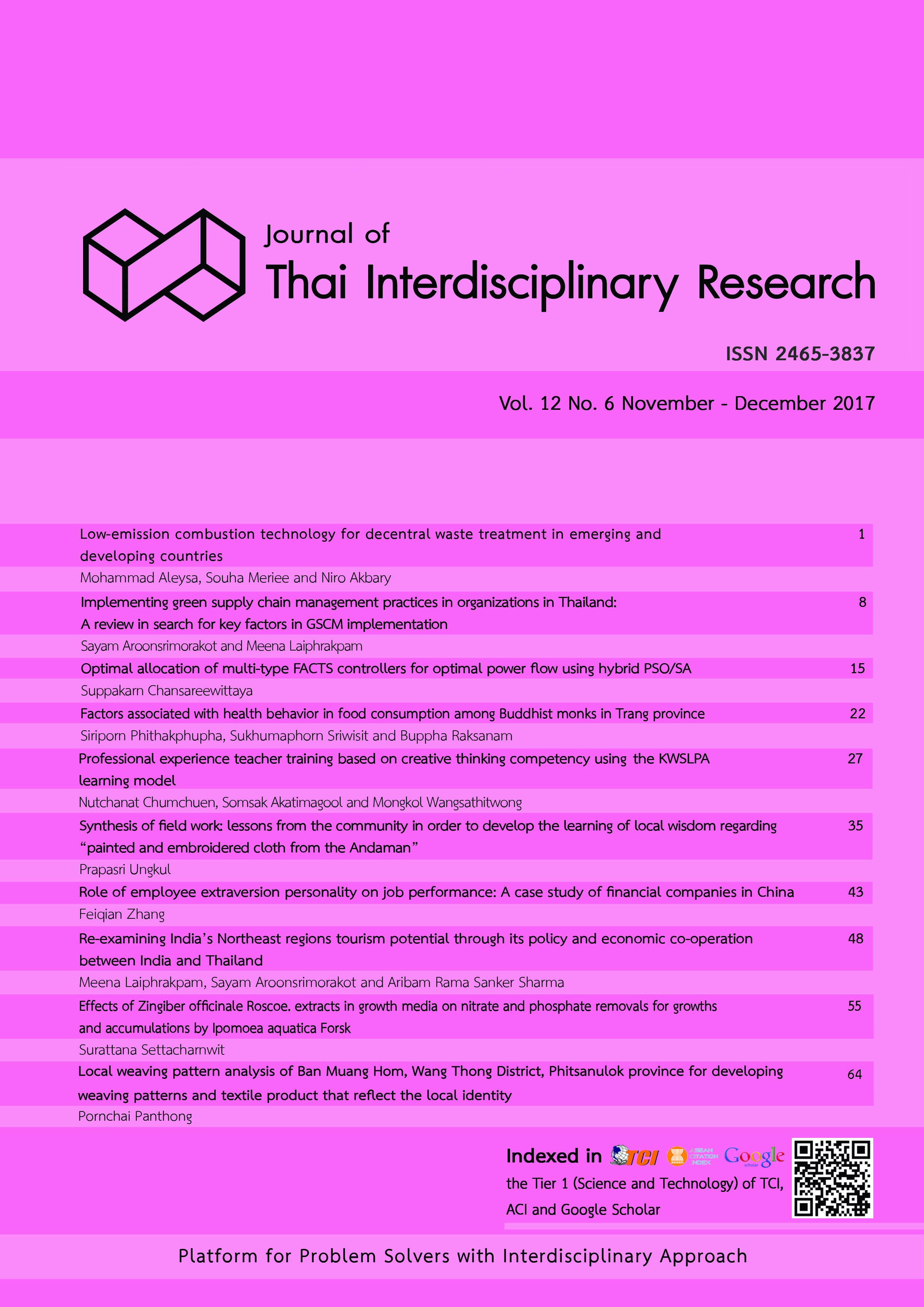Synthesis of field work: lessons from the community in order to develop the learning of local wisdom regarding
Main Article Content
Abstract
The study reflects the students’ learning outcomes from the community, knowledge management which leads to the improvement of the locals lives. The objectives were to study and gain knowledge about the local textiles of the Andaman area; to solve problems and to develop the community’s life quality; and to manage the knowledge and apply it to the teaching and learning of the students. The sample group consisted of 6 groups of people from Phuket, Krabi, and Trang. The groups were as follows: Phuket: KohSireh group, Ban Paklok group, Kamala group, Poogar Art group, Look Pad See group; Krabi: Kok Yang group; Trang: Na Muen Sri group. This research employed qualitative technique. SWOT analysis, Participatory Action Research, and Appreciation Influence Control were employed. The instruments consisted of a focus group discussion, interviews, an in-depth interview, and open discussions. The data was examined by public hearings. The data was analyzed and presented in descriptive forms. The results revealed that the Andaman local wisdom knowledge consisted of 4 types as follows: 1) 3D painted Pateh cloth by the KohSireh and Ban Pa Klok group 2)Embroidered cloths and souvenir making by Kok Yang group 3) Using colorful beads and pearl to decoratethe Pateh by Kamala group 4) Making various products from cloth by Look Pad Sri group and Paklok group 5) Mixed methods between painting and embroidering cloth to make clothes and other products including picture frames, lamps, by the Poo Gar group 6) Weaving cloth from cotton, silk, and products from the cloth itself by Na Muen Sri group. These groups implemented their work based on the 3 concepts: sufficiency, self- reliance, and helping each other. The researcher proposed 6 methods in order to solve the problems and develop the community’s life quality: preservation, transferring, spreading knowledge, continuing knowledge, connecting knowledge, and sustainability. This research could obtain the knowledge which leads to the development of the community as well as its education. The community could build their network among their own groups of interest in which they can share and exchange their experiences (explicit knowledge), while the tacit knowledge (individual knowledge) of each member is increased. The community could develop their local wisdom in order to become a learning organization.


